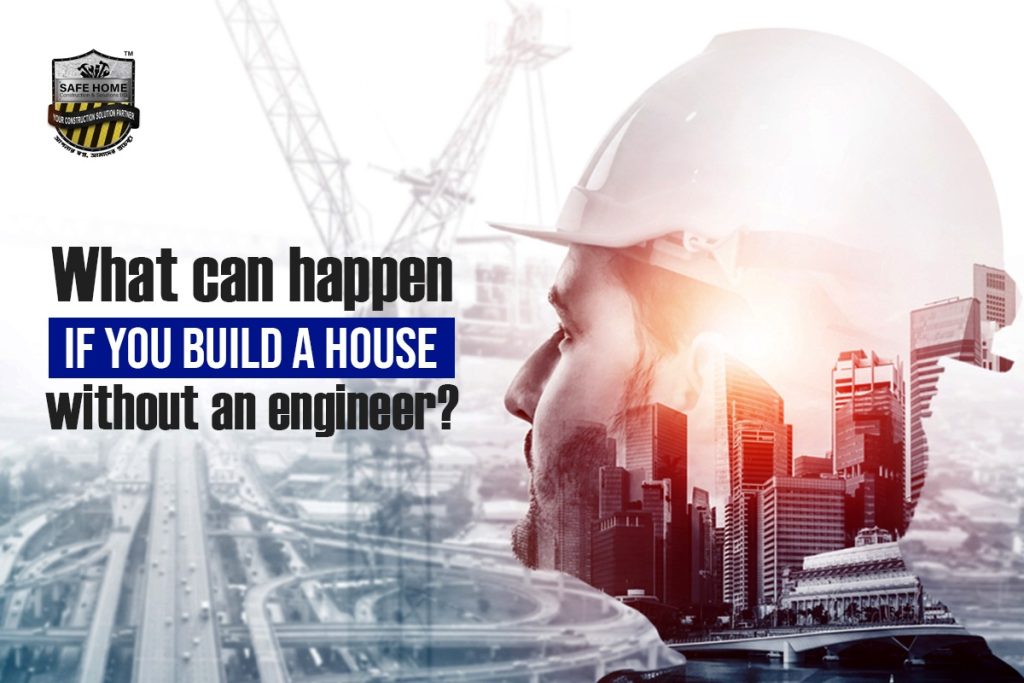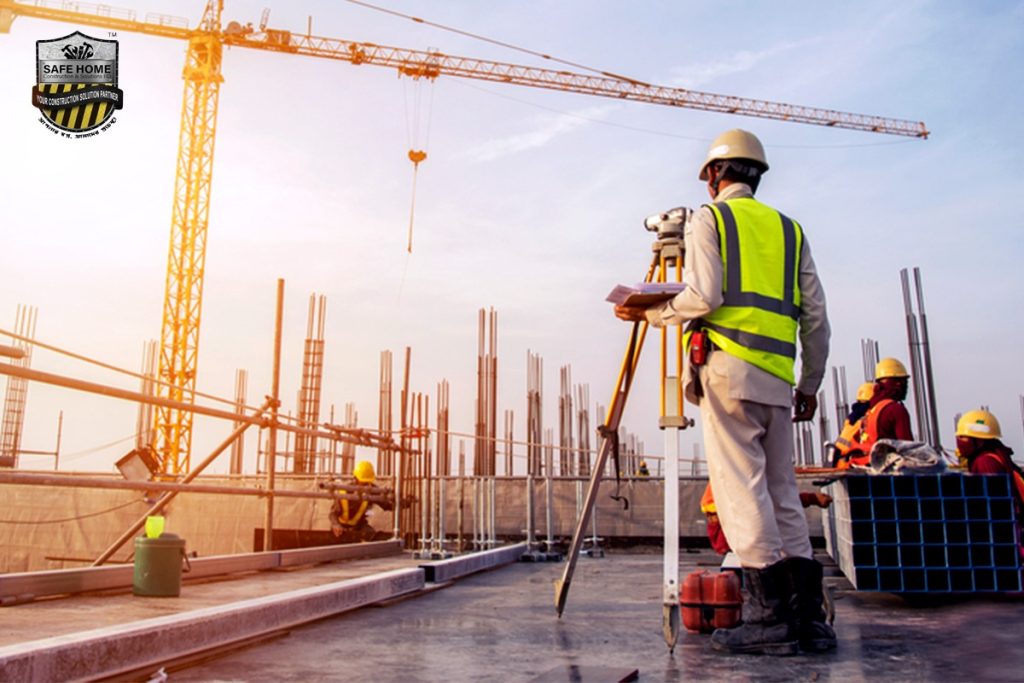Introduction
Building a house is one of the biggest dreams and investments in a person’s life. It’s not just about bricks and cement—it’s about creating a space where memories are made, families grow, and futures are secured. Every corner of the home reflects years of hard work, savings, and emotional connection. That’s why every decision to build a home must be made with care, planning, and professional guidance.
However, many people make the critical mistake of starting construction without involving a professional engineer. At first, it may seem like a smart way to save money or speed up the process. Some might think that relying on experienced local masons or contractors is enough. But in reality, skipping the engineer can lead to serious issues, both during and after construction. The consequences can be severe and sometimes irreversible, from weak foundations and faulty designs to safety risks and legal troubles.
What Does an Engineer Do in House Construction?
An engineer plays a big role in construction. They make sure your house is strong, safe, and long-lasting. From soil testing to structure design, from quality checks to safety rules — an engineer handles it all. Without one, your house may stand, but it may not be safe.
- Risk of Structural Failure: If you build a house without an engineer, there’s a big chance the structure won’t be strong enough. Engineers calculate the right size of beams, columns, and foundations. Without proper calculations, your house can crack, sink, or even collapse.
- Poor Quality Construction Materials: Engineers help choose the right materials for every part of the house. If you don’t have one, contractors may use low-quality materials to save costs. This can reduce the life of your building and make it unsafe for your family.
- No Soil Testing Risk: Soil testing is one of the first steps in construction. Engineers check the soil condition to decide how strong the foundation needs to be. Without soil testing, your house might face settlement issues, especially during heavy rains or earthquakes.
- Foundation Problems: A strong and stable home begins with a solid foundation. Engineers carefully design the foundation based on the soil condition and the load of the building. Without professional guidance, there’s a high risk of using the wrong foundation type or size.
- Unsafe Electrical and Plumbing Systems: An engineer ensures that all systems — electrical, plumbing, and drainage — are planned properly. If you skip this step, you may face frequent problems like short circuits, water leakage, or blocked pipelines.
- No Safety for Earthquake: In areas like Bangladesh, earthquakes and cyclones are common. Engineers design buildings to resist these disasters. If you build a house without an engineer, your house won’t be able to handle strong winds, putting lives at risk.
- Violation of Building Codes: There are national and local building codes every house must follow. Engineers know these rules. If you don’t follow them, your house might be declared illegal.
- Higher Maintenance Costs in the Future: A house built without proper design and engineering may look fine at first. But over time, problems will appear — cracks, damp walls, plumbing issues, roof leakage, etc.
- Difficulty in Selling the House: If your house doesn’t have proper approval or engineering documentation, buyers will not trust it. Banks may also refuse to give home loans on such properties. You will lose the value of your investment.
- Life-Threatening Risk for Family: Above all, safety comes first. If you build a house without an engineer, you’re putting your family’s life in danger. A weak structure can collapse during a disaster, causing injury or even death.
What Happens Without Engineers?
Engineers are the architects of modern civilization. Without them, our world would lack structure, innovation, and safety.
- No Infrastructure Development: Without engineers, there would be no bridges, highways, buildings, or safe transportation systems. Cities would be unorganized and hazardous.
- Technology Would Not Exist: From smartphones to satellites, all modern gadgets and systems are the result of engineering. Without engineers, technological progress would come to a halt.
- Unsafe Living Conditions: Engineers ensure buildings are strong, roads are safe, and machines work properly. Without them, the risk of accidents and structural failures would rise sharply.
- Poor Health Systems: Medical equipment, hospital design, and even clean water systems rely on engineering. Healthcare would be far less advanced and effective without them.
- Industrial Growth Would Stop: Factories, machines, and production lines need engineers for planning and maintenance. No engineers means slower production and economic instability.
- Daily Life Would Be Difficult: From electricity and vehicles to the internet and appliances, everything depends on engineering. Life would become slow, inconvenient, and unsafe.
Engineers don’t just build—they protect, improve, and shape our future.
Why Do People Avoid Engineers?
Many people think hiring an engineer is costly. But the truth is, it’s a long-term investment. An engineer saves your money by avoiding construction mistakes. Some people also rely too much on local masons or contractors, who are not trained to handle complex building requirements.
The Role of Safe Home Construction
At Safe Home Construction, we believe your home should be more than just beautiful — it should be safe, strong, and built to last. That’s why we bring together expert engineers, architects, and supervisors to handle everything from planning to finishing.
We don’t cut corners — we build homes that meet safety standards, stand the test of time, and give your family true peace of mind.
What You Should Do Before Starting a House
Before building your dream home, careful planning and expert guidance are key to success. Following the right steps from the beginning helps prevent construction mistakes and ensures your home is safe, strong, and durable.
Here are the most important steps you should take before starting construction:
- Hire a Licensed Engineer: A certified engineer ensures that your home is designed with proper calculations and safety standards in mind.
- Do Proper Soil Testing: Understanding your land’s soil type helps in designing a foundation that suits the ground conditions.
- Create a Structural Design: A detailed design ensures the right placement of beams, columns, and other key components to support your house properly.
- Use Approved Materials: Always select high-quality, tested materials for strength, durability, and long-term performance.
- Follow All Building Rules: Comply with local building codes and regulations to avoid legal issues or fines.
- Supervise Every Step: Regular supervision prevents errors, ensures quality, and keeps your project on track.
Conclusion
To save a little money now, many people take the wrong step — they build a house without an engineer. But this small saving can lead to big problems later: safety risks, legal issues, weak structures, and even life-threatening dangers. An engineer is not an extra cost — it’s a protection for your home, your money, and your family.
If you build a house without an engineer, you’re building on risk.
Build smart. Build strong. Build safe — with Safe Home Construction.


